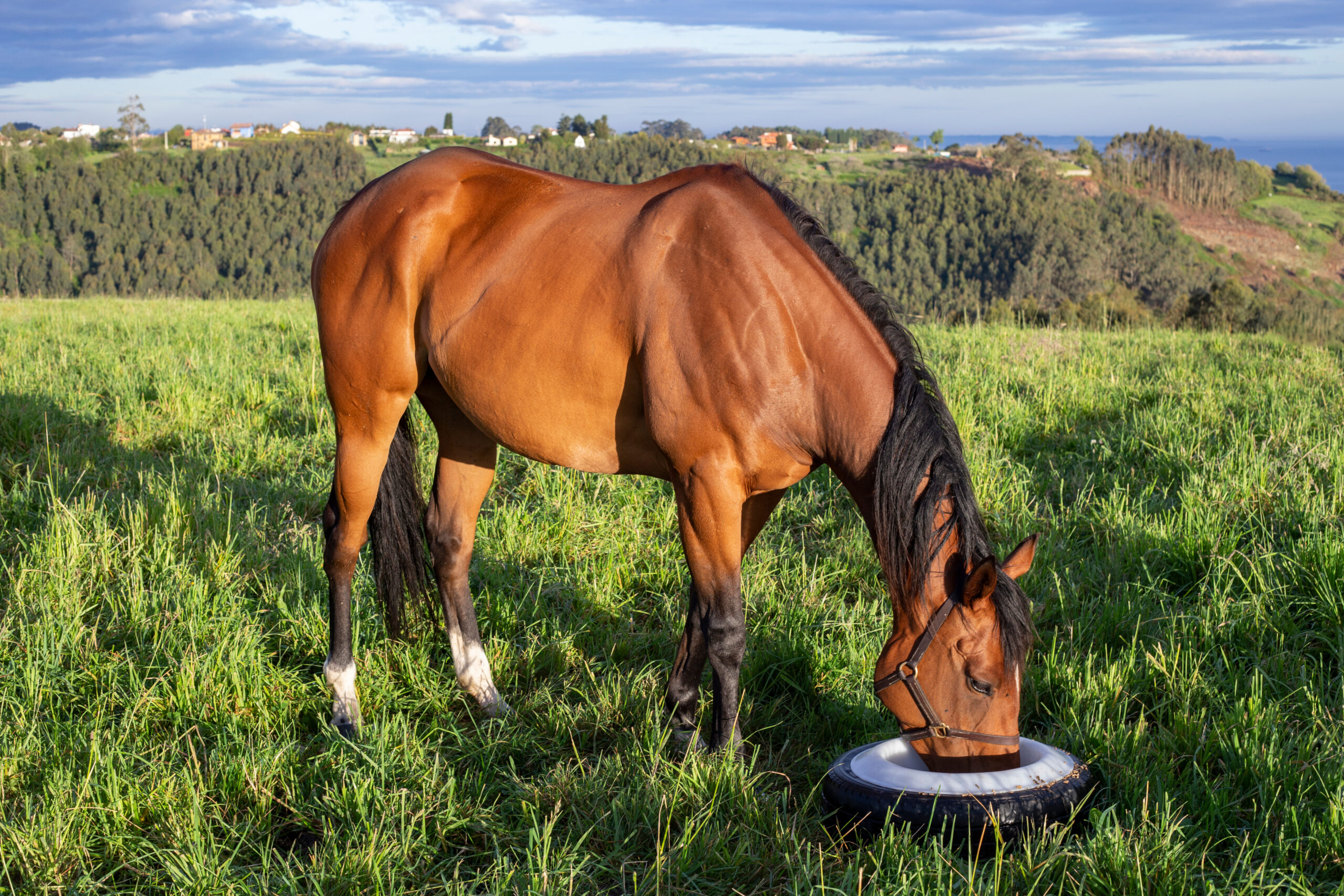[ad_1]
First, it helps to know a little about the equine digestive system. It functions best when a horse is grazing 24/7, taking in small amounts of forage at frequent intervals, just as nature intended.

When a horse is confined to a stall and fed two or three meals of grain or concentrate every day, we are treating him more like a human than a horse. Not only is this schedule unnatural for him, but his digestive system also isn’t designed for this all-at-once overload. In certain horses, over time, this common feeding regimen can lead to colic, ulcers or even laminitis (founder), so proper feeding and feeding management is critical.
Extruded feed to the rescue! Earlier in this series, we discussed how the extrusion process makes each feed nugget lighter and airier. This results in a higher volume of feed per pound than you get with pelleted preparations. How can this help your horse? Because the nuggets are larger and more porous, he will chew extruded feed longer and the nuggets break down easier. This means smaller amounts of food moving through his system at a slower rate for optimal digestibility and less risk of choke.
In addition, the longer chewing time triggers increased saliva production. This helps protect the horse’s stomach lining from the gastric acids it continues to produce even when empty. It’s just one more way that extruded feed can help minimize digestive upset.
And here’s a bonus: The fact that it’s easy to chew and highly digestible makes extruded feed ideal for senior horses or those with poor teeth.
So, whatever your horse’s age or activity level, extruded feed supports his gut health in a number of ways.
[ad_2]
Source link
